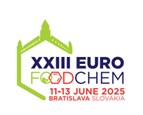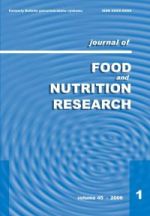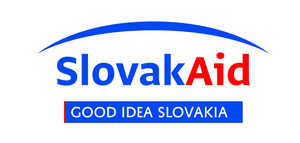Scientific journal
Journal of Food and Nutrition Research
Summary No. 2 / 2023
Mikulić, M. – Atanacković Krstonošić, M. – Gaćeša, B. – Vojnović, T. –
Quality assessment and dissolution properties of dietary supplements with isoflavones
Journal of Food and Nutrition Research, 62, 2023, No. 2, s. 118-128
Mira Mikulić, Department of Pharmacy, Faculty of Medicine, University of Novi Sad, Hajduk Veljkova 3, 21000 Novi Sad, Serbia. E-mail: mira.bursac@mf.uns.ac.rs
Original article
Received 3 March 2023; 1st revised 21 March 2023; accepted 21 March 2023; published online 30 March 2023.
Summary: Determination of the detailed chemical composition of active compounds in dietary supplements and their release from dosage form is not obligatory, although these parameters are crucial for obtaining the desired health effect. Six commercially available dietary supplements with soya (four products) and red clover (two products) extract, used for alleviation of menopausal symptoms, were chemically characterized and several tests of solid dosage forms were performed. Quantification of isoflavones was conducted using high-performance liquid chromatography. In three supplements total isoflavone content varied by ± 10 % from the declared content, while in other samples the values ranged from + 14.6 % to + 63.4 %. Daidzein and its conjugates were the most abundant isoflavones in all soybean-based dietary supplements, while formononetin was dominant in red clover supplements. Three products did not have desirable uniformity of dosage units. Dissolution test showed that only two soy-based supplements released more than 75 % of the declared isoflavone content in 45 min. Isoflavones from both red clover products were poorly (less than 5 %) dissolved. The obtained results indicate that more rigorous control of the production process and of the final products is needed in order to provide high quality dietary supplements.
Keywords: dietary supplement; quality control; isoflavone; dissolution test
Download:
(pdf, 411.26 Kb, 404x)










